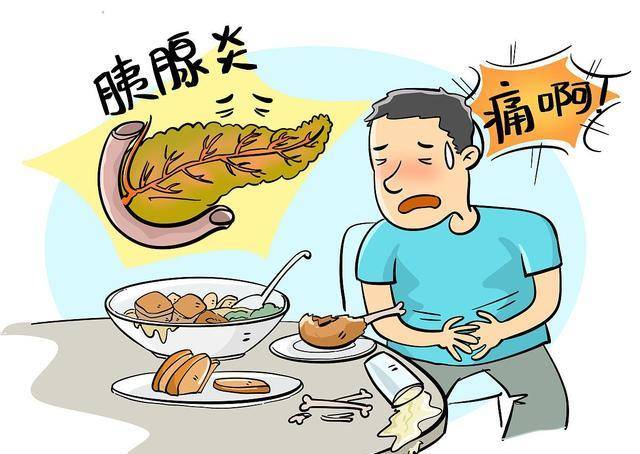“Heartburn” Food Blacklist Strikes? Reminder! People with too much stomach acid should eat less of these foods!
In today’s fast-paced life, stomach discomfort has become a common problem for many people, especially the “heartburn” caused by excessive stomach acid, which makes many people suffer. In fact, our dietary habits are closely related to this feeling. Today, let’s find out together which foods may worsen the symptoms of excessive stomach acid and provide a practical dietary guide for people with too much stomach acid.
I. Symptoms and causes of excessive stomach acid
When there is too much stomach acid, people often feel a burning sensation in the chest, known as “heartburn.” This feeling is actually caused by the backflow of stomach acid into the esophagus. Normally, stomach acid should stay in the stomach to aid digestion, but when there is excessive stomach acid secretion or when the entrance of the stomach (cardia) relaxes, stomach acid can reflux upwards, causing discomfort.
There are various causes of excessive stomach acid, including poor dietary habits, high stress, long-term smoking, alcohol abuse, and the influence of certain diseases. Among them, dietary habits are the most direct and easily adjustable factor.
II. Foods that people with too much stomach acid should eat less of
Spicy and irritating foods: Spicy foods such as chili, Sichuan pepper, ginger, garlic, and other spicy foods can irritate the stomach lining, increase stomach acid secretion. For individuals with excessive stomach acid, this is undoubtedly making things worse. Therefore, it is advisable to avoid consuming these kinds of foods as much as possible. Greasy foods: Fried foods, fatty meats, and other high-fat foods stay in the stomach for a long time, are not easily digested, increase the burden on the stomach, and lead to increased stomach acid secretion. People with too much stomach acid are better off choosing light and easily digestible foods. Acidic foods: Acidic foods such as citrus fruits (like lemons, oranges), tomatoes, vinegar, etc., can stimulate the stomach to produce more stomach acid. Although these foods are rich in vitamin C, individuals with excessive stomach acid should consume them in moderation. Coffee and tea: Both coffee and tea contain caffeine, a substance that stimulates stomach acid secretion. Especially when consumed on an empty stomach, the stimulation to the stomach is more pronounced. Therefore, individuals with excessive stomach acid are better off drinking less or no coffee and strong tea. Chocolate and mint: Chocolate contains theobromine, while mint contains menthol, both of which may cause relaxation of the lower esophageal sphincter, worsening symptoms of reflux. Therefore, individuals with excessive stomach acid should be particularly cautious when faced with the temptation of chocolate and mint. High-sugar foods: Desserts, candies, and other high-sugar foods not only cause a rapid increase in blood sugar but can also stimulate stomach acid secretion. Additionally, high-sugar foods may trigger inflammation, further worsening stomach discomfort. High-salt foods: Pickled foods, salty snacks, and other high-salt foods absorb and retain a large amount of water, increasing the burden on the stomach. At the same time, excessive salt intake may damage the protective layer of the stomach lining, making the stomach acid more likely to erode the stomach wall. Alcoholic beverages: Alcohol can irritate the stomach lining, leading to increased stomach acid secretion. Long-term alcohol consumption may also cause gastritis, stomach ulcers, and other stomach diseases. Therefore, individuals with excessive stomach acid should try to avoid alcohol consumption.
III. Dietary recommendations for people with excessive stomach acid
Choose alkaline foods: such as bananas, spinach, tofu, etc., these foods help neutralize stomach acid and alleviate heartburn symptoms. Eat more fiber-rich foods: such as oats, sweet potatoes, celery, etc., dietary fiber helps promote gastrointestinal motility, reduce the time food stays in the stomach, thereby reducing the burden on the stomach. Eat small meals frequently: Avoid consuming too much food in one go to reduce the digestive pressure on the stomach. Additionally, chewing food thoroughly aids in better digestion and absorption. Pay attention to the timing of water intake: Try to avoid drinking large amounts of water immediately before or after meals to prevent diluting stomach acid, affecting digestive function. The best time to drink water is about half an hour before meals, in small amounts of warm water. Maintain a happy mood: When under high mental stress, excessive stimulation of the sympathetic nervous system can slow down gastrointestinal motility, affecting digestive function. Therefore, maintaining a positive mindset is essential for stomach health.
#Motivation Plan for Millions of Fans with Pictures and Text# IV. Summary
The “heartburn” caused by excessive stomach acid can indeed be very uncomfortable, but by adjusting dietary habits and lifestyle, we can effectively alleviate this symptom. Understanding and avoiding foods that may worsen excessive stomach acid, choosing a healthy and beneficial diet, not only makes our stomach more comfortable but also lays a solid foundation for overall health. I hope this “heartburn” food blacklist can provide practical reference and help for people with excessive stomach acid.


